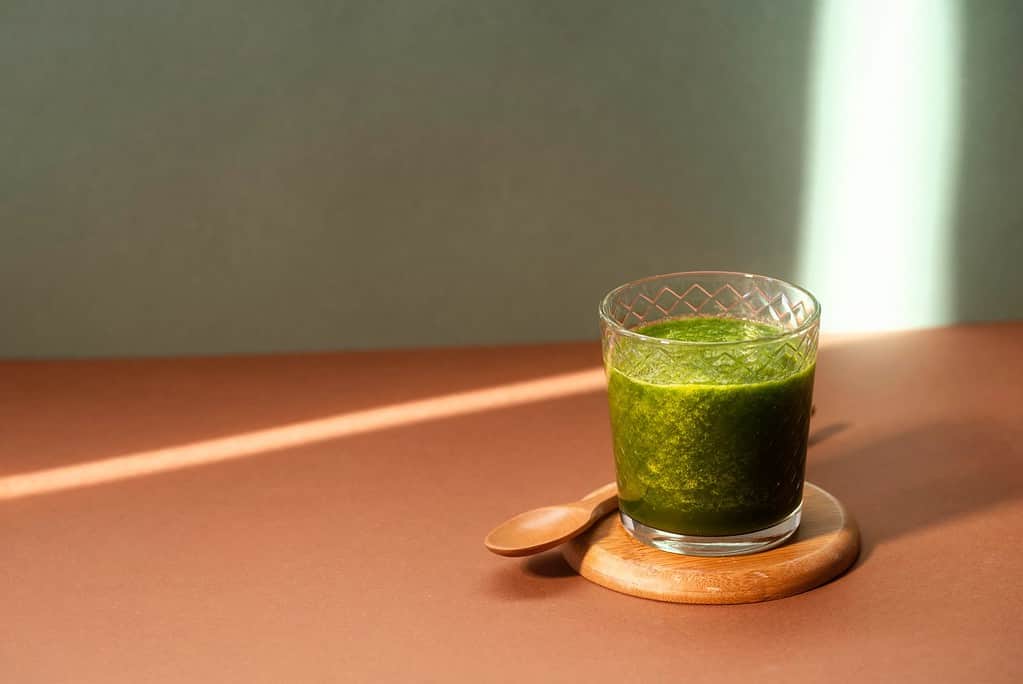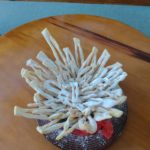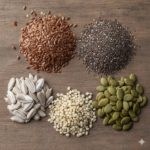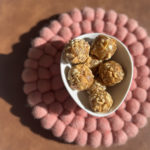
Rentia Greyvenstein
Registered Dietician (NZ), Qualified Chef
Difficulty: Easy
Ready In: 15 Minutes
Serves: 4
Ingredients
- 1 Tbsp ginger
- 1½ cup pineapple
- 1 cup curly kale
- 1 cup cucumber
- 1 small celery stick (1/2 celery stick, not more than 20g)
- A squeeze of lemon, to taste
- 1 Tbsp Glutamine per cup
- 2-4 Tbsp Aloe vera juice
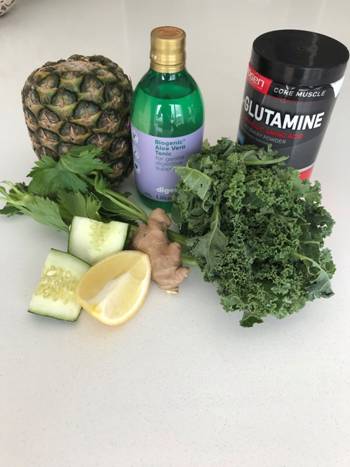
Instructions
1. Peel ginger
Peel the ginger using a small knife and cut into small pieces.
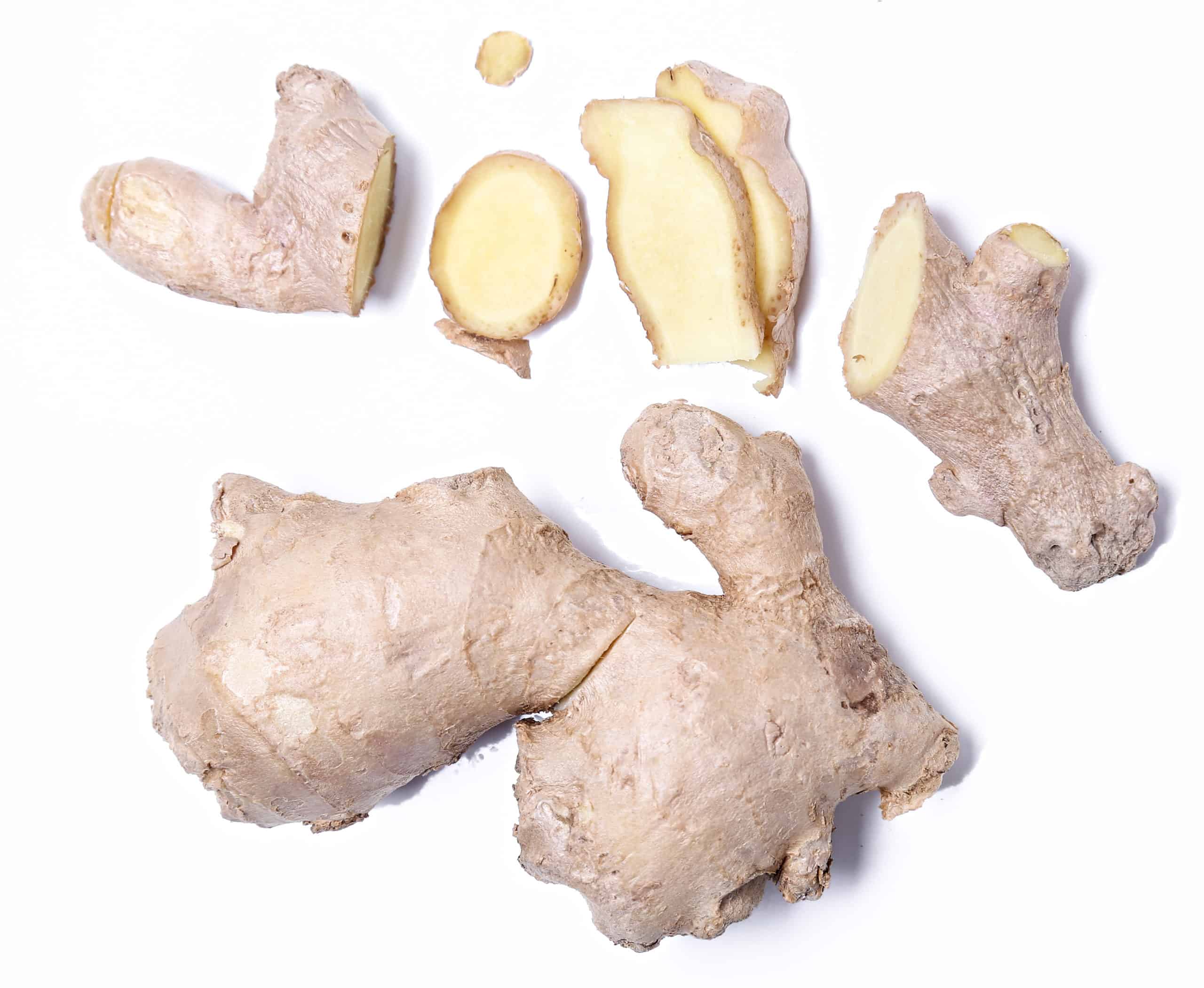
2. Chop the vegetables and fruit
Wash the rest of the vegetables and fruit and cut them into bite-sized pieces. The kale should be destalked and torn into smaller pieces. Some juicers will have trouble juicing the core of the pineapple, so be sure to remove it as well.
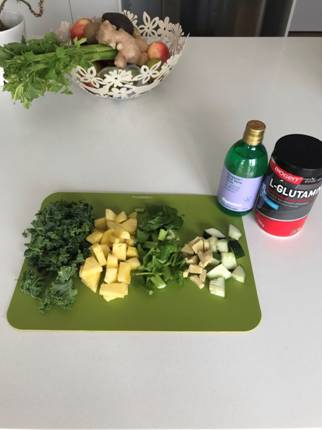
3. Blend the vegetables
Pass the vegetables through the juicer.
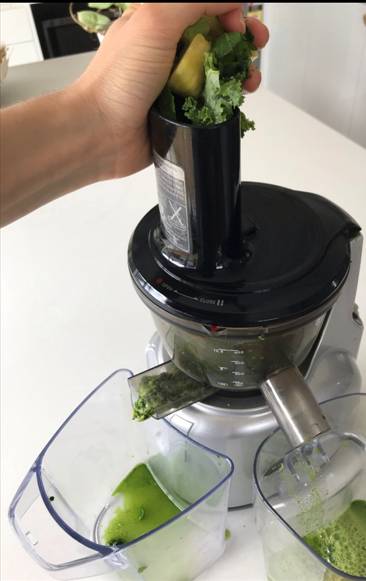
4. Dilute the juice
Dilute the juice with 1 cup of water for every cup of green juice.
5. Add glutamine and Aloe vera juice
Add glutamine (1 Tbsp) and Aloe vera juice (2 Tbsp) per cup, or as much as tolerated.
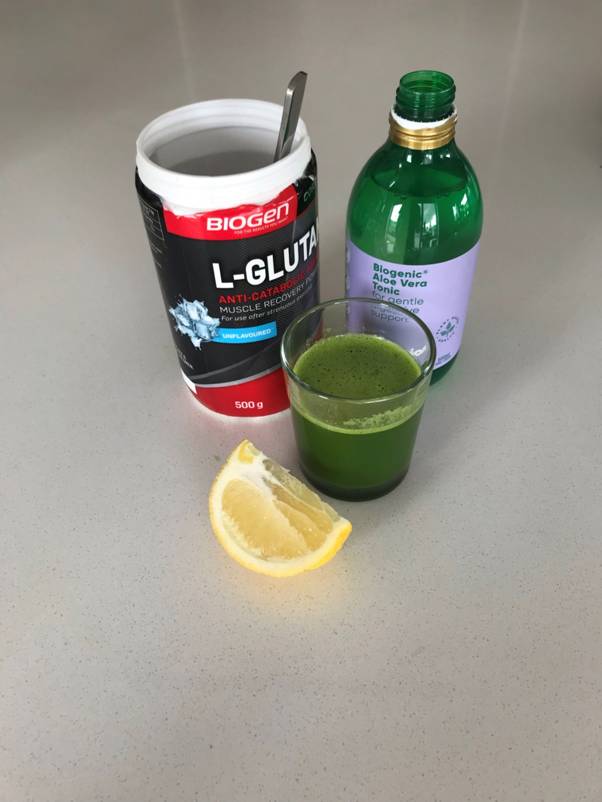
6. Add the lemon juice
Add some lemon juice to taste and for added health benefits.
Health benefits of Green Juice
Green juice is becoming increasingly popular among health enthusiasts due to its many health benefits.
A juice cleanse for a day or two is a wonderful healing tool. It can give our body energy and nutrients while giving our digestive system a break if we are experiencing a flare-up of digestive complaints such as small intestinal bacterial overgrowth (SIBO).
The fermentable fibres or FODMAPs in many fruits, vegetables and grains could make SIBO worse, and drinking green juice gives the digestion a break.
The combination of ingredients found in this green juice is perfect for improving gut health.
Kale is packed with vitamins A, C and K, making it a powerful tool against gut inflammation. Pineapple contains a digestive enzyme called bromelain which supports digestion and helps to break down proteins in the body.
Aloe vera helps to promote balance in the digestive tract, reducing bacteria and yeast overgrowth. Ginger is known to improve the absorption of essential nutrients and provide anti-inflammatory benefits. Ginger could also alleviate symptoms of nausea and indigestion. Glutamine is an essential amino acid that helps to support gut health and reduce leaky gut syndrome.
RELATED — What is the function of amino acids in our body?
Although celery is known to be a high FODMAP food, taken in smaller quantities should not cause digestive upset. Celery also has high levels of anti-fungal properties and contains essential vitamins and minerals, including vitamins A, K, C, B vitamins (folate), beta-carotene, calcium, iron and magnesium.
RELATED — Magnesium (for a great night of sleep)
Lastly, I like to add a squeeze of lemon; this will further improve digestion.
It is important to note that drinking green juice alone will not provide all the benefits associated with improving gut health. A balanced diet consisting of wholefoods and minimally processed foods, rich in fibre, probiotics and fermented foods is essential for achieving healthy gut microbiome.
Rentia is a qualified dietitian and chef who has worked in the food industry for the last decade, collaborating with companies such as Nandos and McCain, helping them with food product and recipe development.
She has had, and overcome, her struggles with food allergies and sensitivities and learned to navigate a pain disorder. She is well aware of the impact that food has on our physical and emotional well-being and believes that the food we consume is one of the best tools for healing available.
Rentia sees herself as a champion for healthy eating but is also a foodie at heart. Her passion is to enable people to eat foods that heal and nourish without making them feel deprived, and her special focus lies in child and maternal nutrition.
Rentia is hosting cooking classes at different venues around Auckland and is also seeing clients at her practice, and through a tailored and client-based approach is assisting them to get back on the path of health and recovery. You can find Rentia at The Healing Plate.

